7 High-Dividend Stocks With Durable Distributions
The market's recovery is drying up yield opportunities. But a few high-dividend stocks with well-backed payouts remain.

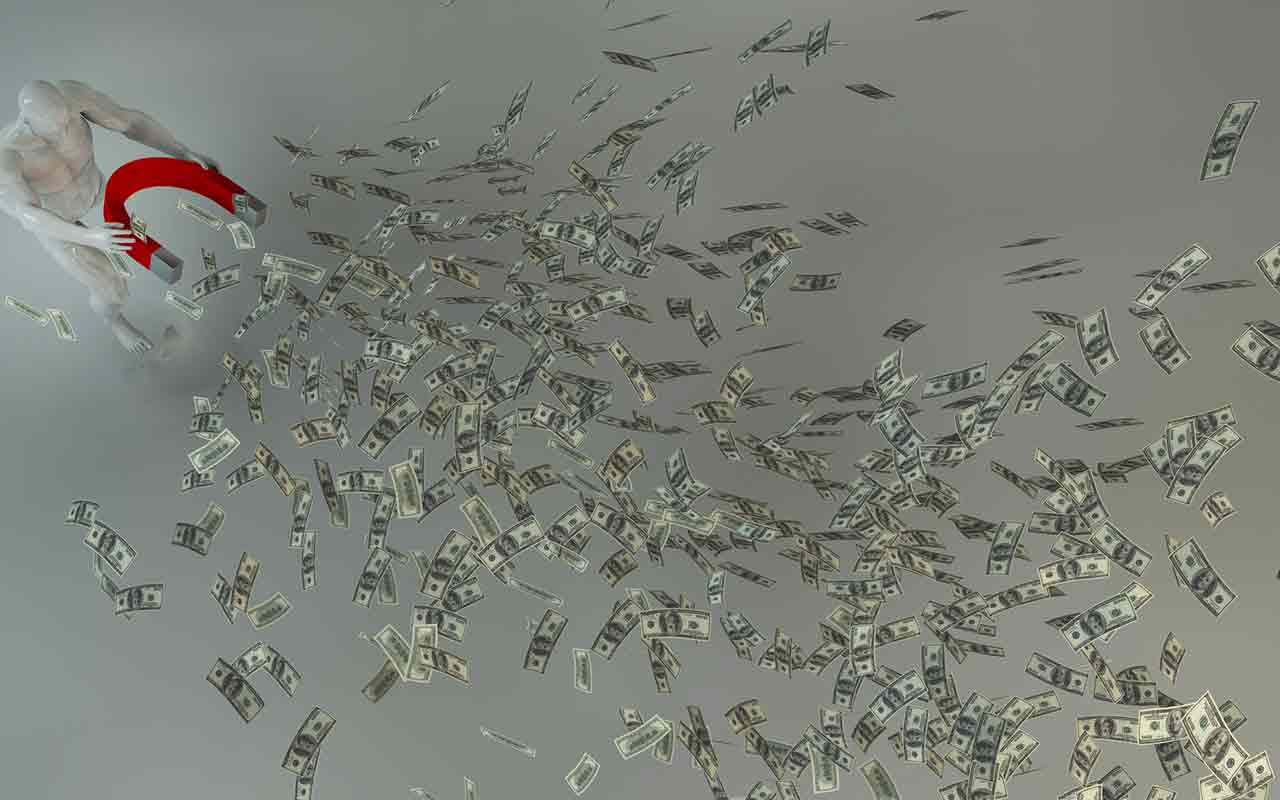
Profit and prosper with the best of Kiplinger's advice on investing, taxes, retirement, personal finance and much more. Delivered daily. Enter your email in the box and click Sign Me Up.
You are now subscribed
Your newsletter sign-up was successful
Want to add more newsletters?

Delivered daily
Kiplinger Today
Profit and prosper with the best of Kiplinger's advice on investing, taxes, retirement, personal finance and much more delivered daily. Smart money moves start here.

Sent five days a week
Kiplinger A Step Ahead
Get practical help to make better financial decisions in your everyday life, from spending to savings on top deals.

Delivered daily
Kiplinger Closing Bell
Get today's biggest financial and investing headlines delivered to your inbox every day the U.S. stock market is open.

Sent twice a week
Kiplinger Adviser Intel
Financial pros across the country share best practices and fresh tactics to preserve and grow your wealth.

Delivered weekly
Kiplinger Tax Tips
Trim your federal and state tax bills with practical tax-planning and tax-cutting strategies.

Sent twice a week
Kiplinger Retirement Tips
Your twice-a-week guide to planning and enjoying a financially secure and richly rewarding retirement

Sent bimonthly.
Kiplinger Adviser Angle
Insights for advisers, wealth managers and other financial professionals.

Sent twice a week
Kiplinger Investing Weekly
Your twice-a-week roundup of promising stocks, funds, companies and industries you should consider, ones you should avoid, and why.

Sent weekly for six weeks
Kiplinger Invest for Retirement
Your step-by-step six-part series on how to invest for retirement, from devising a successful strategy to exactly which investments to choose.
The market's violent rebound since the March 23 lows has been a welcome relief for long-term shareholders and a boon for dip buyers. But one group of investors has actually been put out by the rally: income investors looking to put dry powder to work in high-dividend stocks.
As the S&P 500 has crashed and recovered, its yield has whipsawed. The blue-chip index yielded roughly 1.8% to start 2020, jumped all the way to 2.3% as of March, and has dipped back below 2%. That might not sound like much, but remember: That's the average among 500 large-cap companies. The swings across the broader stock market have been much more pronounced, and several high-yield dividend opportunities have disappeared as a result.
Several … but not all.
Hundreds of high-dividend stocks still deliver payouts of more than 5%. The problem is that some of those dividends belong to distressed companies that might not be able to continue funding their ample cash distributions.
One way to protect yourself is to prioritize signs of dividend health, using the DIVCON system from exchange-traded fund provider Reality Shares. DIVCON uses a five-tier rating to provide a snapshot of companies' dividend health. DIVCON 5 indicates the highest probability for a dividend increase, while DIVCON 1 signals the highest probability for a cut. Within each of these ratings is a composite score determined by free cash flow-to-dividend ratios, profit growth, stock buybacks (which companies can pull back on to fund a dividend in a pinch) and other factors.
Here are seven high-dividend stocks that have been identified for their payout strength. Nothing is certain, of course – so far this year, a few companies with well-funded distributions nonetheless pulled the plug to ensure their survival throughout the pandemic. Still, each stock has a rating of DIVCON 4, which signals a healthy dividend not just likely to survive, but to grow.
Stock prices and other data is as of June 1. Stocks listed in order of dividend yield. Yields are calculated by annualizing the most recent quarterly payout and dividing by the share price.
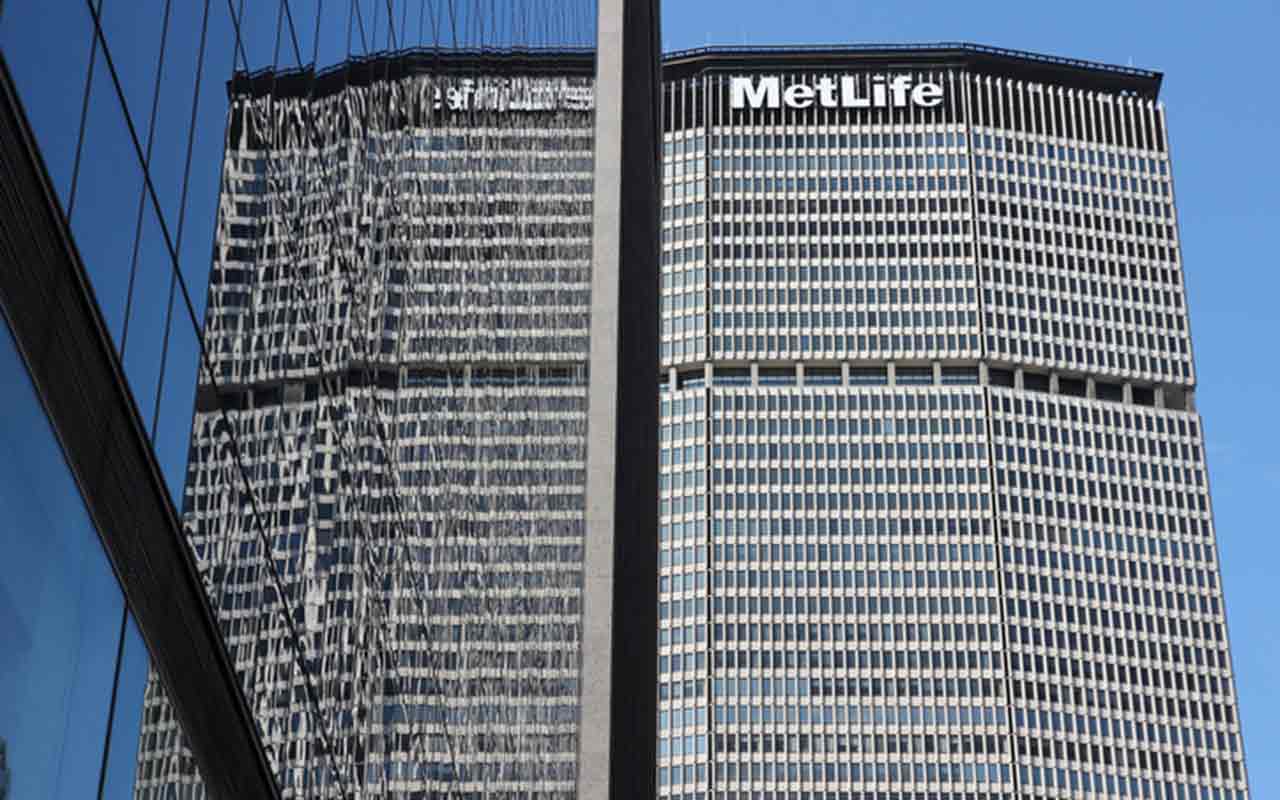
Metlife
- Market value: $33.0 billion
- Dividend yield: 5.1%
- DIVCON Rating: 4
- DIVCON Score: 60.75
Metlife (MET, $36.37) is a one of the world's largest insurance companies, and one that's closing in on 150 years of operation. It provides life, auto and home insurance, annuities, employee benefit programs and more to about 100 million customers, and boasts contracts with more than 90 of the Fortune 500's top 100 companies.
And like most insurers, it has been hobbled in 2020.
Call it par for the course. Insurance stocks typically sell off rapidly in the face of all sorts of disasters, though investors often overestimate just how bad coverable losses will actually be. Nonetheless, MET stock remains 28% lower from where it started the year, keeping its yield just above the 5% mark for now.
No one's losing sleep over the dividend, however. In late April, Metlife announced a 4.5% increase to its quarterly distribution, to 46 cents per share. That just barely qualifies it for this list of high-dividend stocks, at a 5.1% yield. The annualized payment comes out to a mere 34% of this year's expected profits of $5.38 per share, which the pros expect will rebound in 2021 to $5.96.
DIVCON points out a few other factors to make income investors feel warm and cuddly. Free cash flow over the past 12 months has been enough to cover the payout many times over, and a 125% repurchases-to-dividends ratio means that Metlife has ample room to rein in buybacks should it really need to conserve cash to preserve the dividend. A high Bloomberg dividend health score of 57 is encouraging, too. (Bloomberg uses a -100 to 100 scale in which a positive reading signals potential for dividend growth.)
Metlife's situation is expected to improve from here. JPMorgan's Jimmy Bhullar (Overweight, equivalent of Buy) writes that management "expects spread margins to be stable or improve slightly despite the low rate environment, and that "strong dental margins and a potential improvement in disability margins should help group benefits results."
Wall Street's $42.25 average price target on MET stock implies 16% upside over the next year, too. That comes from a generally bullish camp of nine Buys versus just five Holds.
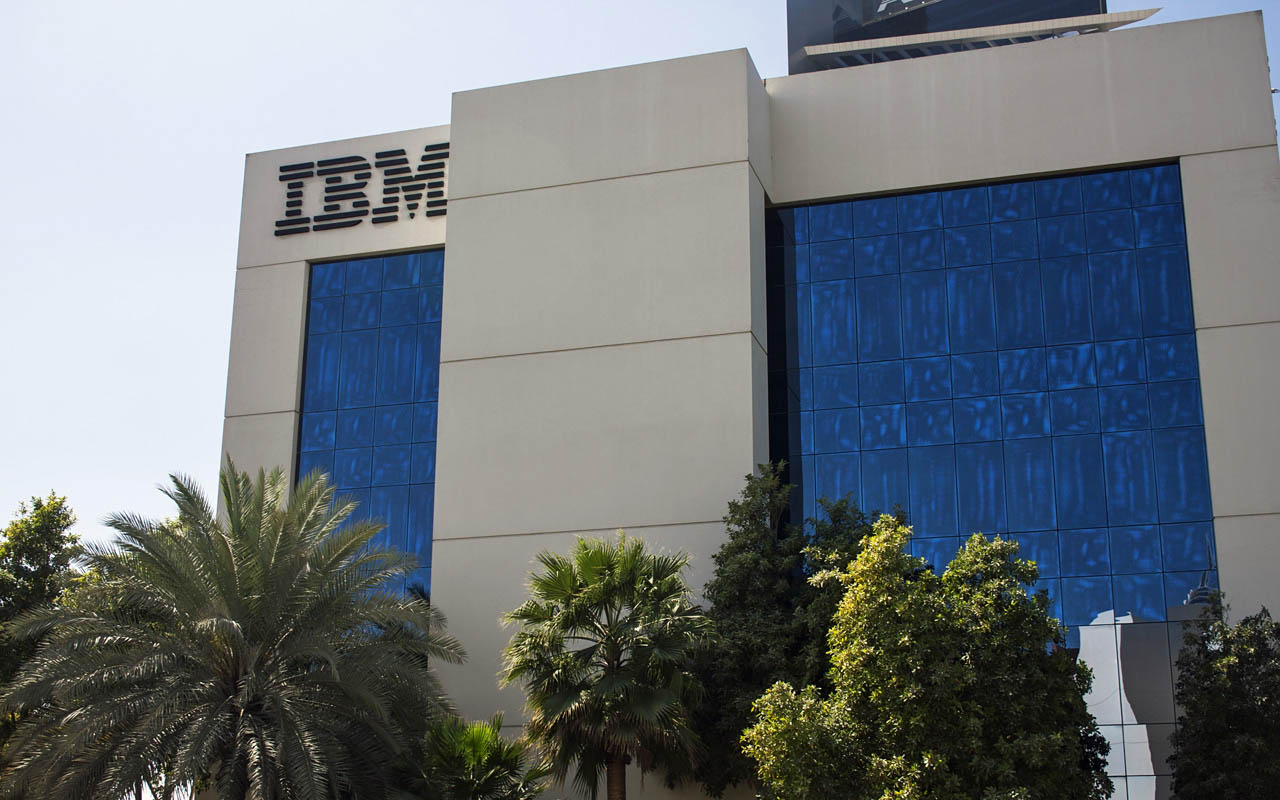
International Business Machines
- Market value: $110.9 billion
- Dividend yield: 5.2%
- DIVCON Rating: 4
- DIVCON Score: 57.75
International Business Machines (IBM, $124.89) has long been dogged by its inability to get ahead in cloud computing. However, it made considerable progress on that front in 2019 when it bought Red Hat for $34 billion.
IBM shares have been just a bit above average in 2020, losing a little more than 5% versus a roughly 7% loss for the S&P 500. Really, the tech stock's yield is more a product of slow but steady declines over the past few years versus a persistently growing dividend. In fact, with a penny-per-share hike to its quarterly dividend, to $1.63 per share, announced in April, IBM marked its 25th consecutive year of payout raises, qualifying it for inclusion in the Dividend Aristocrats.
The mere fact that IBM hiked its payout in the midst of a bear market and likely recession alone are reasons to believe the payout will survive. But the company also pays out a very manageable 58% of analysts' already lowered expectations for profits this year.
DIVCON also gives the dividend high safety marks thanks to FCF that's roughly 450% what it needs to pay the dividend. A high Altman Z-score indicates not a trace of bankruptcy threat, too. (Altman Z, which measures a company's credit strength, deems anything with a score of 3 or more to have a low to negligible probability of bankruptcy.)
Whether this high-dividend stock can deliver more than just high income is up in the air, however.
The analyst community currently has five Buys, 13 Holds and two Sells on IBM stock. For instance, BMO Capital analyst Keith Bachman, who has a Market Perform rating (equivalent of Hold) on shares, is worried about the broader macro backdrop, though he acknowledges that Red Hat should provide more durability.
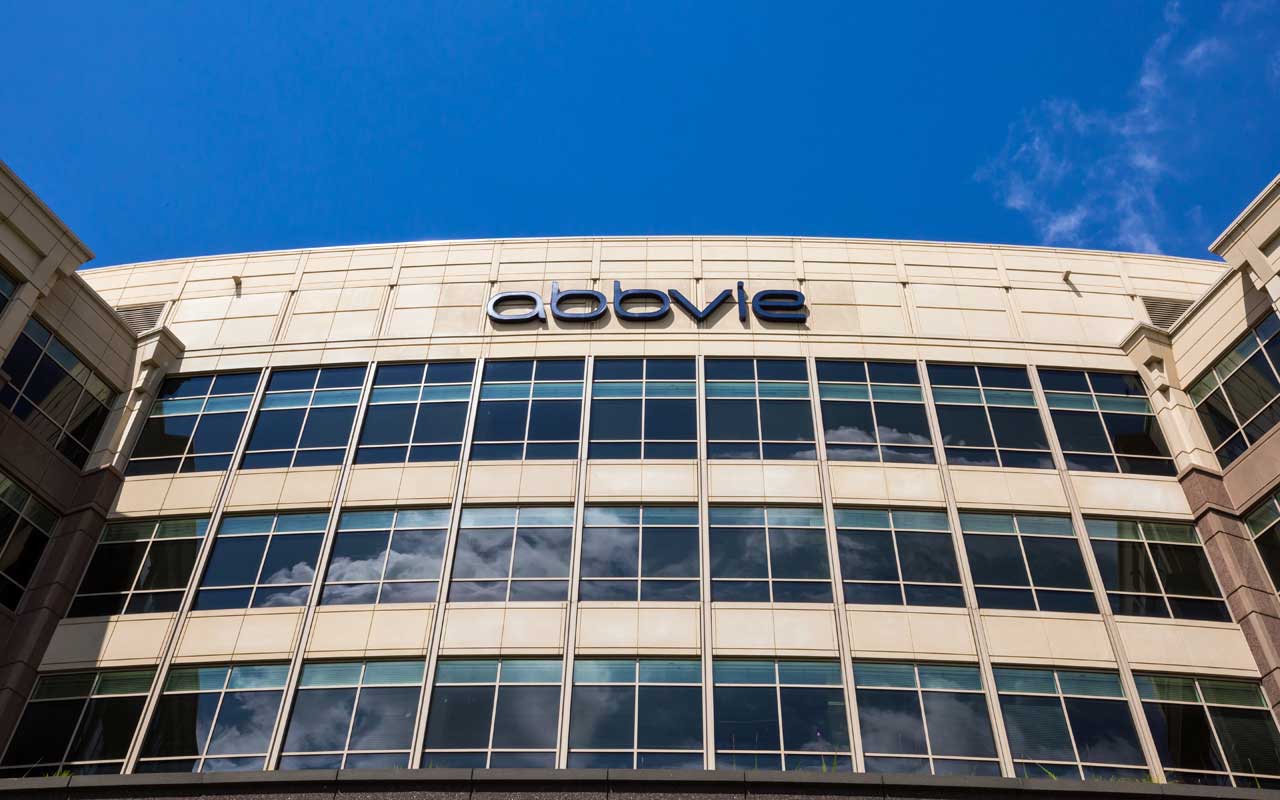
AbbVie
- Market value: $159.8 billion
- Dividend yield: 5.2%
- DIVCON Rating: 4
- DIVCON Score: 59
AbbVie (ABBV, $90.70) is a pharmaceutical company that's primarily known for Humira, which treats several conditions (including rheumatoid arthritis and plaque psoriasis) and accounts for a whopping 60% of sales. But it does have other products, including cancer drugs Imruvica and Venclexta, as well as psoriasis treatment Rinvoq.
Humira's core patents expired in 2016, and while AbbVie has obtained certain protections, it know it can't rely on the drug for revenues forever. Enter the company's merger with Allergan, which closed in May, that tucks blockbusters including wrinkle treatment Botox and dry-eye drug Restasis into AbbVie's lineup. The combined company should produce $30 billion in annual sales.
The company also has a considerable debt to pay down, but that shouldn't interfere with AbbVie's dividend, which has been growing for 48 consecutive years if you count its time joined with Abbott Laboratories (ABT), which S&P Dow Jones Indices (creator of the S&P 500 Dividend Aristocrats) does.
"ABBV is trading at close to historical lows and we see cash-flow support for the current sector-high dividend. Both should help support (the) shares into anticipated recovery," writes RBC Capital's Randall Stanicky, who rates shares at Outperform. "Our investment thesis on AbbVie is based on our view that (the company) will generate double-digit near-term growth on the back of price and loss catchup in 2021 and strength of core franchises."
Analysts on average expect ABBV to generate $10.28 in earnings per share in 2020. That's more than twice what the company would need to fund its payout. Free cash flow over the past 12 months has been 658% of what's necessary to fund the dividend, too.

Interpublic Group of Companies
- Market value: $6.8 billion
- Dividend yield: 5.8%
- DIVCON Rating: 4
- DIVCON Score: 56.75
"It goes without saying that uncertainty and anxiety as a result of the devastating COVID-19 pandemic have generated significant challenges."
So writes Michael Roth, CEO of Interpublic Group of Companies (IPG, $17.47), in the company's first-quarter earnings report. No surprise there. Interpublic is an advertising and marketing company, and with economic activity momentarily slowed to a snail's pace, businesses across the country natural started shutting down their ad and marketing spend. For example, an Influencer Marketing Hub survey carried out before the end of March showed that nearly 70% of brands expected to decrease ad spend in 2020.
Wall Street is forecasting a 30% year-over-year decline in profits to $1.35 per share in 2020. And a 24% decline in IPG shares has baked in much of that pessimism. However, those projected earnings are more than enough to cover the cost of $1.02 in payouts across this year, based on a 25.5-cent payout that's 8.5% larger than it was a year ago.
DIVCON's data also shows that the company's FCF/dividend coverage is a plenty healthy 380% over the trailing 12 months, and a Bloomberg dividend health score of 13.8 shows some potential for increases from here. But a recovery in its operations would go a long way toward firming up the case for future hikes.
From a profit perspective, that looks likely. Analysts are modeling a 22% rebound in 2021 earnings to $1.65 per share. But current price targets only imply 7% upside from here, and the Street is lukewarm, giving the stock five Buys, five Holds and two Sells. As far as high-dividend stocks are concerned, that's not bad, but not great either. The high yield will help pad returns, however.

People’s United Financial
- Market value: $5.0 billion
- Dividend yield: 6.1%
- DIVCON Rating: 4
- DIVCON Score: 56.25
People's United Financial (PBCT, $11.75) is a lesser-known Dividend Aristocrat that only recently achieved its status among the payout elite. This Northeast regional bank boasts more than 400 locations across states including Connecticut, New York and Massachusetts, and has accumulated more than $60 billion in assets.
Like insurers, bank stocks such as People's have declined in 2020 over concerns not just about economic activity, but also low interest rates, which hobble banks' returns on their lending products. PBCT has held up a little better than the sector, however, at 23% losses versus about 30% for financials as a whole.
People's at least enjoyed a strong start to 2020. Operating income was up 15% year-over-year, average balances on loans improved, and the company was confident enough to hike its payout for a 27th consecutive year, to 18 cents per share. So even though analysts forecast a 23% decline in profits to $1.07 per share this year, that still translates to a 67% payout ratio. Plenty of breathing room for the dividend. PBCT also generates enough free cash flow to cover that payout numerous times over.
Investors, however, might want to wait for short-term dip before buying.
While a yield of 6% firmly entrenches PBCT among high-dividend stocks already, analysts are looking for a mere 4% upside from current prices over the next 12 months. Eleven of 12 analysts tracked by Wall Street Journal have the stock at a Hold, too, with the 12th saying Buy.

Unum Group
- Market value: $3.3 billion
- Dividend yield: 7.1%
- DIVCON Rating: 4
- DIVCON Score: 57.5
Unum Group (UNM, $16.06) is a disability insurance provider that has been hanging around since 1848, so it has seen more than its fair share of disasters – pandemic and otherwise. The company currently protects 39 million people, and 182,000 businesses in the U.S. and U.K. offer benefits through Unum.
The company unsurprisingly struggled in its first quarter, with much of its profit miss chalked up to COVID-19 related pressures, says Credit Suisse. And in fact, the company suspended its stock repurchases for 2020 while also pulling its annual guidance.
But Unum did say it intended on keeping its dividend at the current rate, which shouldn't be much of a struggle. Unum's payout is exceedingly conservative among high-dividend stocks, at just 22% of expected 2020 profits of $5.22 per share, which has come down from estimates of $5.76 per share over the past quarter or so.
That, a healthy free cash flow-to-dividend payout ratio, as well as a cleanly positive Bloomberg dividend health score of 28.0, are among the reasons why UNM shares have garnered a DIVCON rating of 4.
But while the yield might be safe, analysts are worried about UNM's prospects from here. The Street has just one Buy versus eight Holds and three Sells, one of which came from BofA's Joshua Shanker at the start of June. Shanker started UNM stock at Underperform, citing "overhang from the company's Long Term Care insurance business."
Investors might want to wait for sunnier outlooks before buying Unum's large dip. UNM remains off 45% year-to-date.
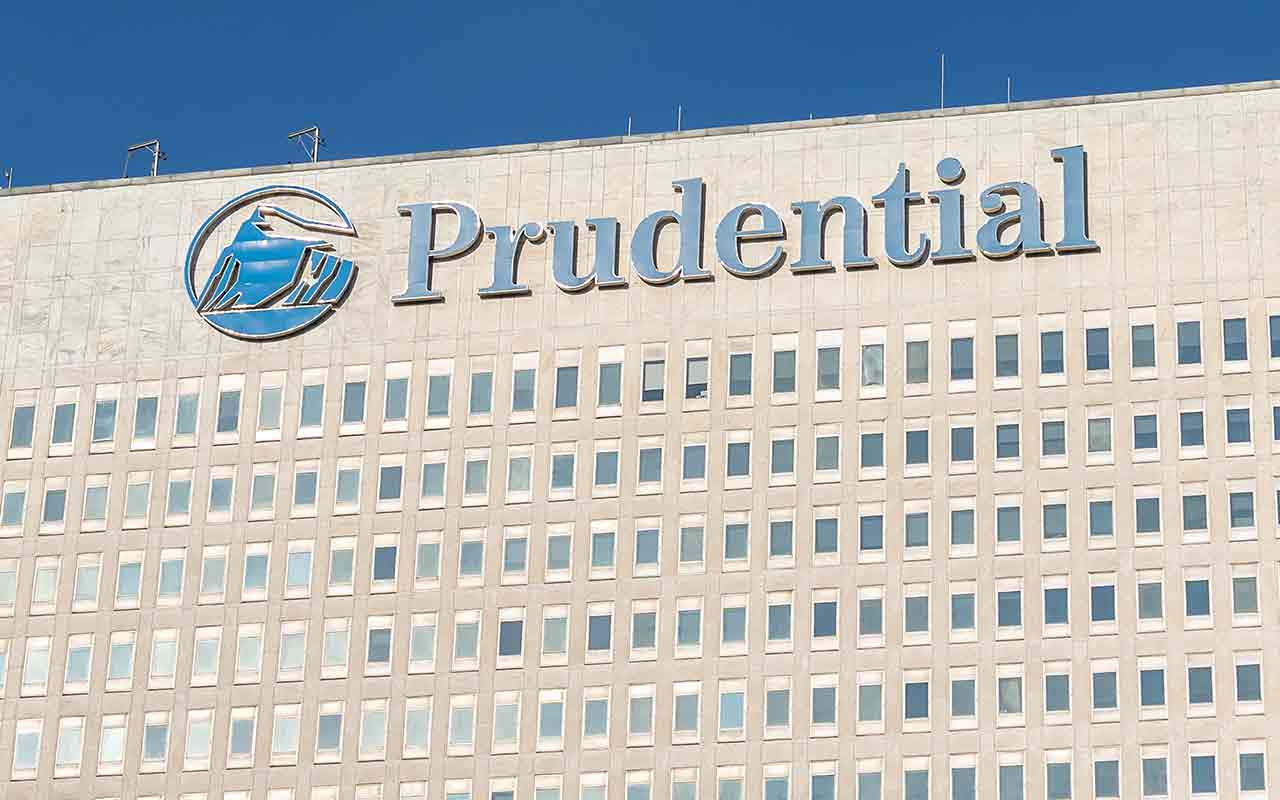
Prudential Financial
- Market value: $24.0 billion
- Dividend yield: 7.2%
- DIVCON Rating: 4
- DIVCON Score: 57.25
Wall Street might not be red-hot on Prudential Financial (PRU, $60.88), but they're leaning bullishly and see decent upside on what is the biggest yield among these high-dividend stocks.
Prudential is – you guessed it – another insurer, though it also offers investment management services, annuities and other financial products.
It's no minnow, at nearly $1.5 trillion in assets under management, reaped from customers across 40 countries. It's also a great place to look if you're interested in ESG-friendly (environmental, social and corporate governance) companies. Prudential is third in the insurance category of the Forbes / Just Capital 2019 Just 100 list, it made Fortune's 2019 companies that "Change the World," and it's first in Fortune's 2020 list of the World's Most Admired Companies.
PRU shares have been knocked down by 35% year-to-date, however, and it also delivered disappointing revenues and profits for its first quarter. Prudential also has suspended buybacks to conserve cash, but the dividend appears to be safe. The company upped the payout by 10% earlier this year, to $1.10 per share. And while analysts expect a 24% drop in profits this year, to $8.91 per share, that's enough to cover Prudential's dividend a little more than twice over.
Wall Street is more bullish than bearish, if barely, at four Buys versus two Sells, and 10 Holds in the middle. They also project 11% upside over the next 52 weeks, which becomes 18% total returns when you include what can be expected out of the dividend. And despite the lukewarm consensus view, there are reasons to like Prudential. Credit Suisse's pros say its "'fortress balance sheet' allows PRU to think strategically, including M&As coming out of the crisis, but deal would need to meet 'high hurdle' of share buybacks."
Profit and prosper with the best of Kiplinger's advice on investing, taxes, retirement, personal finance and much more. Delivered daily. Enter your email in the box and click Sign Me Up.
Kyle Woodley is the Editor-in-Chief of WealthUp, a site dedicated to improving the personal finances and financial literacy of people of all ages. He also writes the weekly The Weekend Tea newsletter, which covers both news and analysis about spending, saving, investing, the economy and more.
Kyle was previously the Senior Investing Editor for Kiplinger.com, and the Managing Editor for InvestorPlace.com before that. His work has appeared in several outlets, including Yahoo! Finance, MSN Money, Barchart, The Globe & Mail and the Nasdaq. He also has appeared as a guest on Fox Business Network and Money Radio, among other shows and podcasts, and he has been quoted in several outlets, including MarketWatch, Vice and Univision. He is a proud graduate of The Ohio State University, where he earned a BA in journalism.
You can check out his thoughts on the markets (and more) at @KyleWoodley.
-
 Look Out for These Gold Bar Scams as Prices Surge
Look Out for These Gold Bar Scams as Prices SurgeFraudsters impersonating government agents are convincing victims to convert savings into gold — and handing it over in courier scams costing Americans millions.
-
 How to Turn Your 401(k) Into A Real Estate Empire
How to Turn Your 401(k) Into A Real Estate EmpireTapping your 401(k) to purchase investment properties is risky, but it could deliver valuable rental income in your golden years.
-
 My First $1 Million: Retired Nuclear Plant Supervisor, 68
My First $1 Million: Retired Nuclear Plant Supervisor, 68Ever wonder how someone who's made a million dollars or more did it? Kiplinger's My First $1 Million series uncovers the answers.
-
 Dow Adds 1,206 Points to Top 50,000: Stock Market Today
Dow Adds 1,206 Points to Top 50,000: Stock Market TodayThe S&P 500 and Nasdaq also had strong finishes to a volatile week, with beaten-down tech stocks outperforming.
-
 Stocks Sink With Alphabet, Bitcoin: Stock Market Today
Stocks Sink With Alphabet, Bitcoin: Stock Market TodayA dismal round of jobs data did little to lift sentiment on Thursday.
-
 Dow Leads in Mixed Session on Amgen Earnings: Stock Market Today
Dow Leads in Mixed Session on Amgen Earnings: Stock Market TodayThe rest of Wall Street struggled as Advanced Micro Devices earnings caused a chip-stock sell-off.
-
 Nasdaq Slides 1.4% on Big Tech Questions: Stock Market Today
Nasdaq Slides 1.4% on Big Tech Questions: Stock Market TodayPalantir Technologies proves at least one publicly traded company can spend a lot of money on AI and make a lot of money on AI.
-
 Fed Vibes Lift Stocks, Dow Up 515 Points: Stock Market Today
Fed Vibes Lift Stocks, Dow Up 515 Points: Stock Market TodayIncoming economic data, including the January jobs report, has been delayed again by another federal government shutdown.
-
 Stocks Close Down as Gold, Silver Spiral: Stock Market Today
Stocks Close Down as Gold, Silver Spiral: Stock Market TodayA "long-overdue correction" temporarily halted a massive rally in gold and silver, while the Dow took a hit from negative reactions to blue-chip earnings.
-
 Nasdaq Drops 172 Points on MSFT AI Spend: Stock Market Today
Nasdaq Drops 172 Points on MSFT AI Spend: Stock Market TodayMicrosoft, Meta Platforms and a mid-cap energy stock have a lot to say about the state of the AI revolution today.
-
 S&P 500 Tops 7,000, Fed Pauses Rate Cuts: Stock Market Today
S&P 500 Tops 7,000, Fed Pauses Rate Cuts: Stock Market TodayInvestors, traders and speculators will probably have to wait until after Jerome Powell steps down for the next Fed rate cut.

